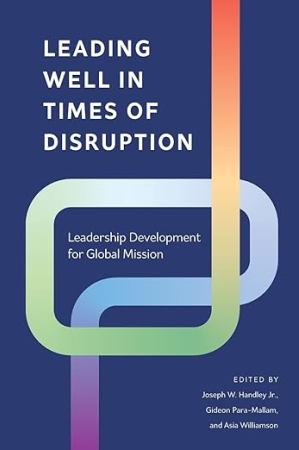
The editors might have been better advised either to publish Leading Well in Times of Disruption: Leadership Development for Global Mission as two separate books or to have chosen a different title for the book as a whole. The current title raised a set of expectations in this reviewer’s mind regarding leadership and Christian mission. However, the entire first section is a history of the ‘Lausanne’ Movement.
To be fair, the authors do draw lessons from this history, but I was not expecting a book focused on ‘Lausanne’. The final chapter and conclusion also centre on this theme. A title that more clearly reflected the ‘Lausanne’ context would have helped this reviewer approach the book with different expectations.
I would certainly have found it easier to discern lessons on the application of Scripture to contemporary leadership challenges from these ‘Lausanne’ sections if the title had indicated this focus. These chapters undoubtedly offer a valuable resource for students of late 20th-century evangelical history and are equally an encouragement to those involved in the Lausanne Movement.
I am glad I persevered through to the later parts of the book, a collection of diverse essays that speak more directly to the book’s current title and are rich in theological insight.
Following the initial section, each essay offers practical and biblical lessons on leadership relevant to our present era, shared by a diverse group of global leaders—providing excellent guidance for lifelong learners.
Joshua Bogunjoko, for instance, suggests that, like the biblical Jonah, "many leaders today have figuratively boarded ships to Tarshish", "feeling entitled to the personal comforts that God had provided for him".
Abigail Abok and Sarah Breuel encourage churches to empower new believers to lead. Kavitha and Jeyakaran Emmanuel confront the issue of ‘colourism’ in their insightful chapter on being outward-looking (and therefore, at times, disruptive).
Recurring themes of partnership and servant leadership remind us that Christ is building one Church—whether through digital technology, going deeper in discipleship, platforming women, theological education, public service, or cultivating resilience and a faithful response to persecution.
I am grateful to the editors that I finished the book eager to read more by several of its contributors. I close with this thought-provoking quotation (from Chapter 25) taken from Femi Adeleye’s Africa’s Enigma:
"A story is told of a group of children who were playing a war game and preparing to attack an enemy camp. They gave themselves very high-sounding titles, including Chief Commanding Officer, Field Marshal General, Major General, Lieutenant General, Lieutenant Major, etc. There was no soldier among them without a title. The tragedy struck when the enemy descended upon them; there was no one to fight back. Everyone falsely assumed that his title entitled him, as a leader, to issue commands to a junior officer—until the junior officer had no one left to execute the command."
If for this quote alone, I’m glad to have rediscovered Femi Adeleye and his writing. This folktale is more relevant than ever, especially for Christian leaders of a certain generation or from hierarchical cultures. Perhaps Adeleye and others like him can help us rediscover the secret of servant leadership – needed more urgently than ever at this troubling stage of world history.
Leading Well in Times of Disruption: Leadership Development for Global Mission, Joseph W. Handley Jr. (ED.), Gideon Para-Mallam(ED.) & Asia Williamson(ED.), Langham Global Library, 2024, Paperback, 978-1-83973-985-9 Print, 978-1- 78641-061-0 ePub, 978-1-78641-062-7 PDF






